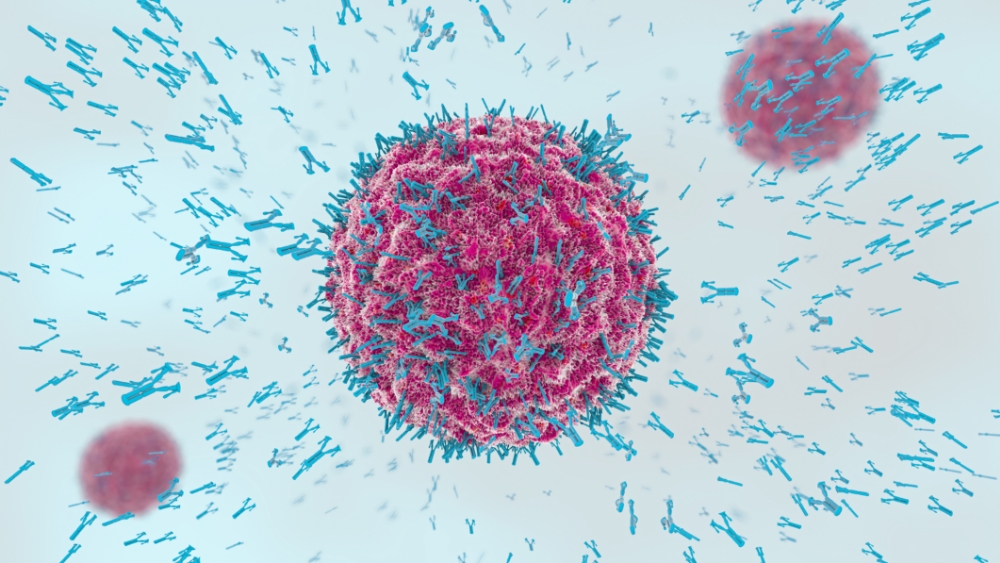
In the search for a universal COVID-19 vaccine, NIH researchers have identified a new target — the N (nucleocapsid) protein — which rarely mutates.

In the search for a universal COVID-19 vaccine, NIH researchers have identified a new target — the N (nucleocapsid) protein — which rarely mutates.
What you need to know
As SARS-CoV-2 — the coronavirus that causes COVID-19 — continues to spread, its genetic material mutates, leading to viral variants. These changes happen most often in the virus’s spike protein, which allows the virus to attach to and invade cells.
Because most COVID-19 vaccines are targeted to the spike protein, antibodies resulting from vaccinations provide less immune protection against variants. This increases people’s risk of getting COVID-19 despite vaccination.
Researchers at the National Institute of Allergy and Infectious Diseases (NIAID) are exploring a different idea for vaccines. Instead of focusing on the SARS-CoV-2 spike protein, they are studying the virus’s nucleocapsid (N) protein, which rarely mutates.1 The N protein could be the key to creating a future universal vaccine to fight emerging variants.
What did the researchers do?
NIAID researchers found that N proteins produced by cells infected with SARS-CoV-2 neutralize multiple chemokines. Chemokines are substances produced in response to an infection or injury, and they attract white blood cells to the area. When N proteins bind to chemokines, this binding weakens the body’s immune response. Without white blood cells to kill virus-infected cells, the virus keeps multiplying and infecting more cells.
Until now, most scientists thought that N proteins stayed inside a cell infected by SARS-CoV-2. But the NIAID researchers discovered that up to 100,000 copies of the N protein stud the surface of a single infected cell. In addition, N proteins on an infected cell can spread to uninfected neighboring cells so that they lose immune protection, too.
Why is this research important?
Other studies have shown that people who have had COVID-19 often have high levels of antibodies against viral N proteins. The antibodies may help prevent reinfection by SARS-CoV-2. Also, injections of purified N protein can stimulate animals’ immune systems to produce antibodies that protect them from future infection.2
Because the N protein rarely mutates, developing a COVID-19 vaccine that prevents N proteins from binding to chemokines could dramatically improve the effectiveness of a vaccine against any SARS-CoV-2 variants. This approach could also reduce the threat of diseases caused by other coronaviruses, since they all produce N proteins.
Where can I go to learn more?
Fact Sheet: Genomics and Virology
- The National Human Genome Research Institute explains how viruses infect cells, take over cells, multiply, and spread to other cells.
How COVID-19 variants evade immune response
- NIH Research Matters discusses how mutations in SARS-CoV-2 variants allow the virus to escape from the body’s immune system.
NIH scientists urge pursuit of a universal coronavirus vaccine
- NIH scientists call for developing universal vaccines to prepare for emerging coronavirus diseases.
Sources
- López-Muñoz, A. D., Kosik, I., Holly, J., & Yewdell, J. W. (2022). Cell surface SARS-CoV-2 nucleocapsid protein modulates innate and adaptive immunity. Science Advances, 8(31), eabp9770. https://doi.org/10.1126/sciadv.abp9770
- Feng, W., Xiang, Y., Wu, L., Chen, Z., Li, Q., Chen, J., Guo, Y., Xia, D., Chen, N., Zhang, L., Zhu, S., & Zhao, K. N. (2022). Nucleocapsid protein of SARS-CoV-2 is a potential target for developing new generation of vaccine. Journal of Clinical Laboratory Analysis, 36(6), e24479. https://doi.org/10.1002/jcla.24479

News and Stories
Read stories about the efforts underway to prevent, detect, and treat COVID-19 and its effects on our health.
 An official website of the United States government
An official website of the United States government

